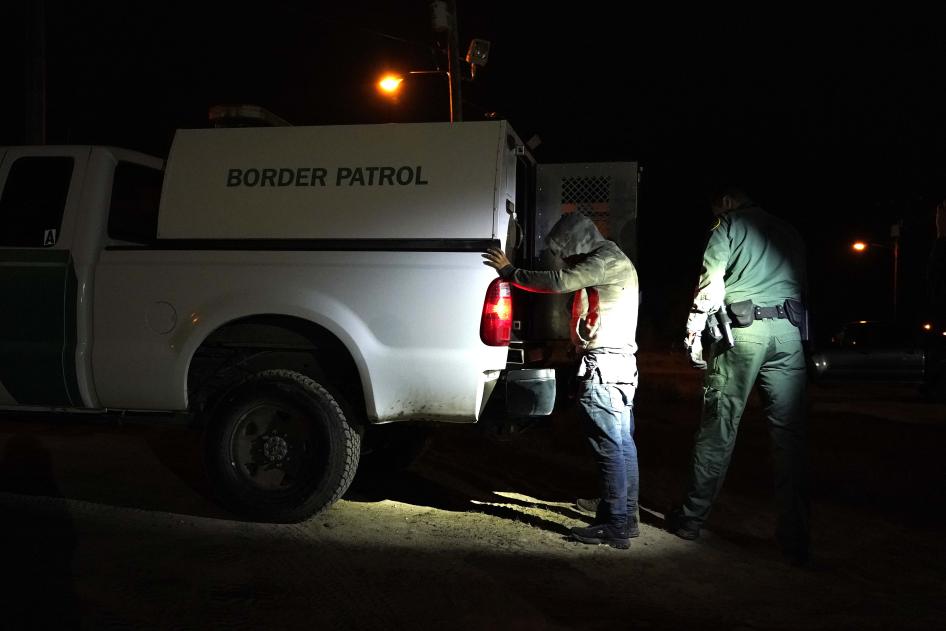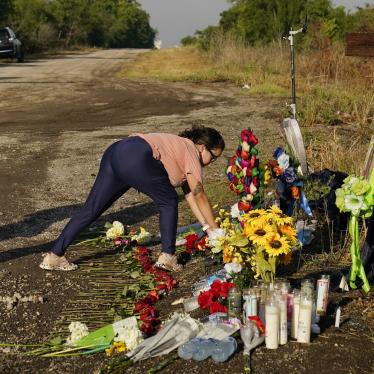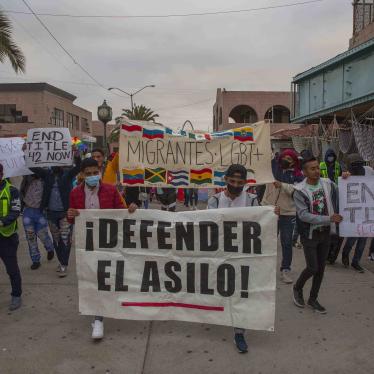In recent years, outrageous United States immigration policies, including separating children from parents at the US-Mexico border, have dominated headlines. But amid these rampant abuses, there have been some steps towards reform, thanks in part to campaigning by human rights and humanitarian groups.
Holding US Customs and Border Protection to Account
US Customs and Border Protection (CBP) officials have been implicated in sexual assault, physical violence, verbal abuse, and the dehumanizing treatment of asylum seekers.
But now, thanks in part to Human Rights Watch’s advocacy, as well as that of the Southern Border Communities Coalition, Alliance San Diego, and the Project on Government Oversight, there will soon be more opportunities to hold them accountable for their actions. In the near future, CBP will hire an additional 350 special agents who will be responsible for rapidly responding to allegations of abuse. This will nearly triple those tasked with investigating misconduct.
A senior official within CBP’s Office of Professional Responsibility, which handles most investigations into agent misconduct, told Human Rights Watch that our work put the agency under pressure and pushed Congress to call for greater accountability. He referenced our 2021 report “They Treat You Like You Are Worthless,” which used internal US Department of Homeland Security reports, obtained through the Freedom of Information Act (FOIA), and documented horrific cases of abuse against migrants by CBP at the US-Mexico border. He also spoke of our work on abuses against child migrants, including the conditions they faced in holding cells.
While this change could bring more accountability, it would be better if, instead of hiring more CBP officials, this funding was used to end the government’s criminalization of migration.
Reining in Border Patrol Critical Incident Teams
In a June memo, The CBP announced that it was planning on disbanding its abusive Border Patrol Critical Incident Teams (BPCITs) “to ensure our agency achieves the highest levels of accountability.”
The Southern Border Communities Coalition, the Alliance San Diego, and Human Rights Watch have all called the BPCITs to be disbanded.
These teams were created in 1987 to investigate use-of-force incidents by the border patrol and its personnel. Yet BPCITs have been implicated in a litany of abuses. The Southern Border Communities Coalition described them as operating as “shadow police units outside of federal law and without congressional authority.” They have been accused of witness intimidation, destruction of evidence, and even the cover-up of an extrajudicial killing. They also allegedly obstructed law enforcement investigations of border patrol violence in California and Arizona.
Impact in California Immigrant Detention Centers
There was an important ruling in California that will hopefully see asylum seekers housed more humanely.
In 2019, California passed Assembly Bill 32, a law that would end the use of privately owned detention facilities. But this law has been subject to legal challenge by both the US Department of Justice and the GEO Group, a Florida-based private prison company, which argued that the bill, if enacted, would interfere with federal immigration policy. Last October, a three-judge panel of the US Ninth Circuit Court of Appeals found in favor of this argument, granting an exemption for immigration detention centers.
In April, the court ruled that the case should be heard by the court’s full panel of 11 judges. This new hearing will take place in June.
Human Rights Watch, alongside our partners the Immigrant Legal Resource Center and Freedom for Immigrants, provided evidence that was used in the first two hearings, and will be re-filed for the June hearing. Our research outlined a host of inhumane conditions in privately run immigrant detention centers in California, such as dangerously inadequate and sometimes fatal medical care; sexual and physical abuse; and the mistreatment of vulnerable groups, such as pregnant women and lesbian, gay, bisexual, and transgender (LGBT) individuals.
These new developments are good news. But the path towards a more humane and dignified US immigration policy will be long and winding. Still, we cannot lose sight of our destination: a United States where refugees are welcome.









